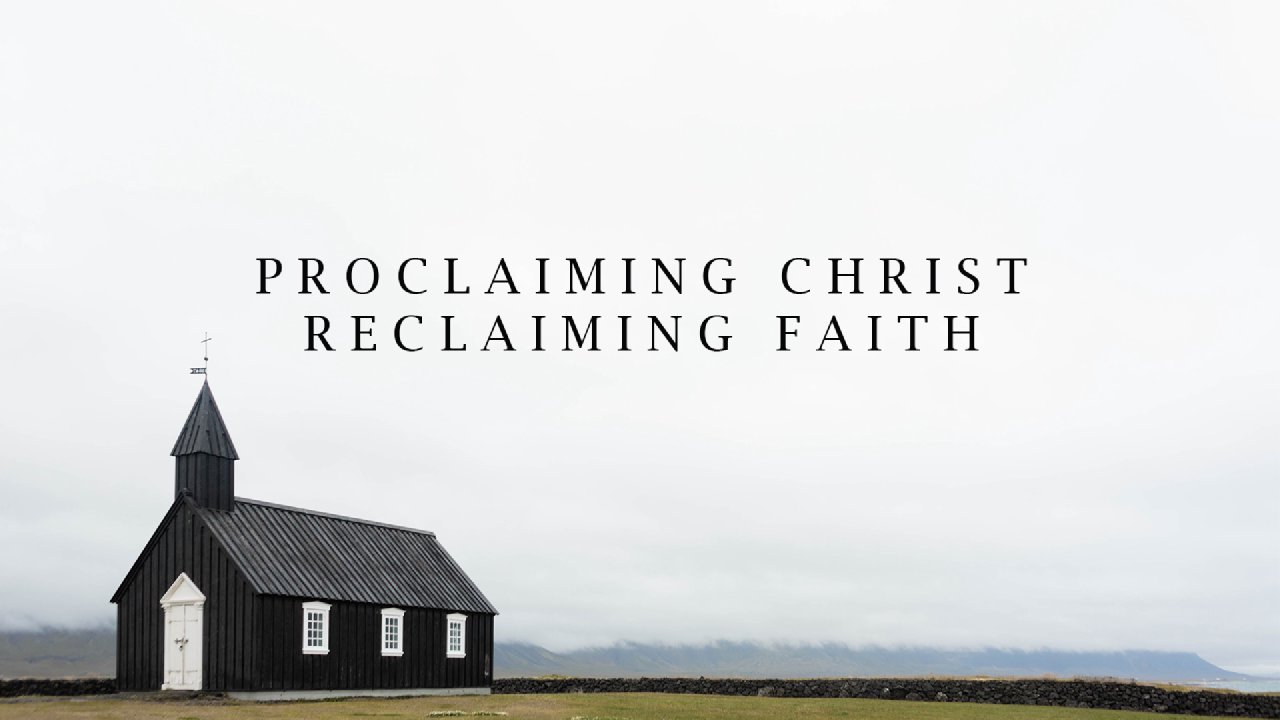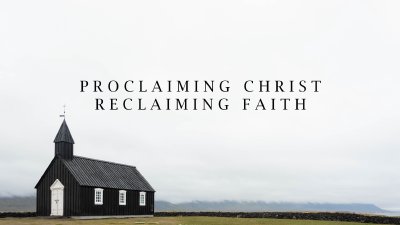• We need to understand that this as a letter addressed not just to the Corinthians back then, but to all “Corinthians” everywhere . . . it’s a letter for you and me and for the church today, and for “all those who call on the name of the Lord Jesus Christ."
• How encouraging that Paul begins his letter with such love and tenderness. He tells a troubled, broken and confused church, that our past, present and futures have been confirmed, secured and sustained in Christ.
• “Paul looked at the Corinthian church, and although there were many flaws that needed correcting, he saw first the evidences of God’s grace” (Andrew Murray). Which are we more aware of in our church? The flaws that need correction or the evidences of God’s grace?
• Paul (and more importantly, Jesus) longs for us to be unified, to be “one with one another.” One reason they’re divided is because they have individual loyalties to different people (Paul, Apollos, Cephas . . . ), and this behavior “empties the cross of its power.” Although we may have differing preaching preferences, we should never allow those preferences to divide us as a body of Christ. We should never be clinging to anything tighter than we are clinging to the Lord. The gospel of Christ is what will bring us back together and set us apart as Christians in the world. It’s the solution to our division.
• “This isn’t an argument for uniformity, for them to all look and act the exact same. It’s an argument for unity in the gospel of Jesus Christ. And it isn’t an argument for long, dull, unimaginative sermons. It’s an argument for recognizing where the power to save really comes from: not from the presentation, but from the proclamation of Jesus Christ, crucified and resurrected” (Stephen Um).
• We are to live in the world but not of it. How do we do that? How can we find our “cultural blind spots,” the ways in which we’ve over-accommodated with world or isolated ourselves too much from it?
• We need to understand that the world has a right-side-up culture, and God presents us with an upside-down gospel. If we measure the wisdom of God against the world’s standards, it appears foolish! If we measure the power of God against the world’s standards, it appears weak! Jesus became the “power of God and the wisdom of God” and turned everything upside down. The gospel is completely counterintuitive.
• What other areas of God’s economy (of the upside-down gospel) does the world regard as foolish or weak?
• “The ways of the world have only been turned upside down once, and that was at Calvary.” He said, “The cross presents us with the most extraordinary inversion in history. It pits the epitome of weakness against the epitome of strength. It takes a bleeding, naked, brutalized and dying, innocent man, and puts him next to the military and legal might of the most powerful, wealthy, and unstoppable empire the world had yet known . . . And yet, this cross of Christ – seemingly the symbol of weakness – became the means of victory” (Andrew Wilson).
• How can we live counterculturally as God’s people? How can we have an upside-down gospel-centered view of the world (as God does) rather than the world’s right-side-up view?
• In what ways is your life shaped by the cross?

Week One: 1 Corinthians 1
January 12, 2022 • Jaime Carnaggio
More from
1 Corinthians Women's Study





